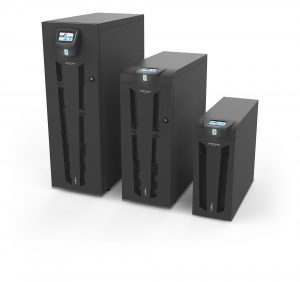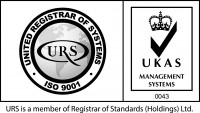What is a UPS System?
Uninterruptible Power Supply (UPS) systems are critical to ensuring that businesses can continue to operate during a power outage or if there is another electrical issue. UPS systems provide backup power to keep essential equipment running, such as computers, servers, and other sensitive electronics. However, it's essential to ensure that UPS systems are properly configured and maintained to provide reliable backup power. This is where power monitoring comes in.
What is Power Monitoring?
Power monitoring is the practice of monitoring and analysing the energy consumption and power quality of a building or facility. By using power monitoring tools, businesses can gain insights into how much energy they are using, identify areas of inefficiency, and optimize their energy consumption. Power monitoring is especially important for UPS systems, as it allows businesses to ensure that their backup power systems are properly sized and configured to provide reliable power during an outage.
What are the Benefits of Power Monitoring for specifying a UPS System?
One of the main benefits of power monitoring for UPS systems is that it can help businesses determine the appropriate size and configuration of their backup power systems. A power monitor can provide detailed information on energy usage and power fluctuations, allowing businesses to identify how much power their critical equipment requires and how long their backup power systems need to last. With this information, businesses can select a UPS system that is appropriately sized to their needs, ensuring that their critical equipment will have sufficient power during an outage.
What are the Benefits of Power Monitoring for Maintaining a UPS System?
Power monitoring can also help businesses ensure that their UPS systems are correctly configured and maintained. By monitoring power quality and identifying issues such as voltage sags, surges, and other electrical anomalies, businesses can take action to address these issues and ensure that their UPS systems are functioning correctly. Regular monitoring can also help identify any issues with the UPS system itself, such as battery degradation or other component failures, allowing businesses to take action before a power outage occurs.
Another key benefit of power monitoring for UPS systems is that it can help businesses reduce costs and improve energy efficiency. By identifying areas of inefficiency and wastage, businesses can take action to reduce energy consumption and lower their energy bills. This not only saves money but also reduces the load on the UPS system, allowing it to provide backup power for longer during an outage.
In conclusion, power monitoring is essential for businesses that rely on UPS systems to provide backup power. By providing real-time insights into energy consumption and power quality, power monitoring tools can help businesses ensure that their UPS systems are properly configured and maintained, properly sized to their needs, and functioning correctly. With power monitoring, businesses can improve energy efficiency, reduce costs, and ensure reliable backup power during an outage.
If you have any questions about this or need to arrange some Power Monitoring/or discuss your UPS requirements, contact us now on the form below.






